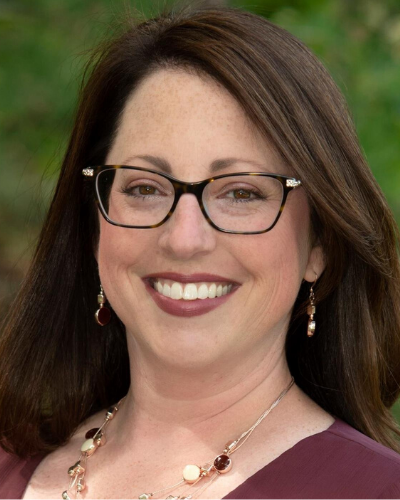The Right Kind of Hard
 In her newest book, Untamed, author Glennon Doyle, says this:
In her newest book, Untamed, author Glennon Doyle, says this:
For me: Pretending was the wrong kind of hard. Divorce was the right kind of hard.
For me: Drinking was the wrong kind of hard. Sobriety is the right kind of hard.
For me: Directness is the right kind of hard. Empathy is the right kind of hard. Speaking up is the right kind of hard.
It’s all effing hard. So maybe it’s just about deciding on the right kind of hard.
Her words spoke to me — actually, it’s more like they jumped off the page and grabbed me!
Because as I read them, I couldn’t help but think about my parents. More specifically, about my dad who was diagnosed with Parkinson’s 15 years ago, and all the gyrations Alyson and I went through as we did our best to not do the hard thing: separate him from our mom and move him to an assisted living community.
What we didn’t understand then is that we were already doing something very hard by trying to find solutions that would allow them to stay together in their condo. We brought in home care. We oversaw his medications. We worried about his safety, his comfort, and my mom’s own health as she was his 24-hours-a-day caregiver.
All of that was hard. But, as Glennon Doyle explains — and as we see so clearly now that our dad is living in an assisted living — it was the wrong kind of hard.
 The hard we live with today feels hugely different. We no longer worry as much about dad’s safety, or the timing of his medications, or all the logistics involved in helping him stay comfortable and happy. Nobody likes knowing their parents are declining as they age. But this kind of hard decision feels so much better.
The hard we live with today feels hugely different. We no longer worry as much about dad’s safety, or the timing of his medications, or all the logistics involved in helping him stay comfortable and happy. Nobody likes knowing their parents are declining as they age. But this kind of hard decision feels so much better.
The truth is, this distinction has put things in focus for me beyond just the subject of my dad’s care. Now, almost every important decision I make, across all aspects of my life, is filtered through this concept. It has given me a new and empowering perspective.
Waiting for the Next Crisis
When it comes to caring for the older adults in our lives, many people have been in a pandemic-induced holding pattern over the past 12 months. We hear it every day as we work with clients:
“I’m not going to bring in-home care until things settle down.”
 “We don’t want to move mom until the vaccine is available everywhere.”
“We don’t want to move mom until the vaccine is available everywhere.”
“We are going to wait on assisted living until my mom can actually benefit from the social activities.”
These are all valid concerns, certainly. And COVID or not, there is always hesitation in making these types of significant life changes. But at some point, it’s important to take stock of what we are putting up with or settling for, and the toll it is taking.
For example, if your mom is resistant to moving and you want to support her wishes, but she keeps falling and you need to keep going over to her house (or the hospital) at a moment’s notice. You are under a lot of stress.
Even when there are a few good weeks in a row, you’re always on alert, waiting for the next crisis to hit. It can strain your relationship and diminish the quality of your time together. At some point, it even makes things worse.
Making the Best Decision
The big question, of course, is “How do we know which hard is the ‘right’ hard?” Some thoughts…
Learn what you don’t know.
There’s nothing wrong with investigating options, even if you are not yet ready for a change. Talk to people whose parents have moved. Call us to discuss the options. Speak to an elder law attorney and/or a financial planner to know where your parents stand.
The more you know, the clearer you will be regarding which is the right kind of hard.
 Find your blind spots.
Find your blind spots.
Are there situations/subjects where you are rationalizing what’s happening?
“Aunt Mary is not unsafe living alone, she’s just a little bit forgetful with her medications.”
“Dad has always been a good driver; anyone could have these little accidents and he really doesn’t want to stop driving.”
It’s hard to notice what you’d rather not see, but if you are constantly thinking, “What would happen if…?”, then you might have a blind spot worth exploring more closely.
How does it feel?
When you make the right kind of hard choices, it feels satisfying.
When you are really in pain, whether that means substance abuse, staying in a bad marriage, avoiding a potential confrontation at work, or not facing up to a loved one’s decline, taking control and taking action helps you feel productive and empowered. And, when our loved one is being cared for well, it feels good, too.
It might be scary — it is scary — but doing nothing out of fear of the unknown is also a choice.
Final Thoughts
It’s been a long pandemic year for all of us and, hopefully, we are starting to see a light at the end of the tunnel:
Assisted living facilities were prioritized for the vaccine, dining rooms are opening, and many locations have already begun to ease restrictions on social gatherings. The residential real estate market is booming as well, and as we head into the spring, this may be an ideal time to consider selling a home.
Doing what’s best for our parents and ourselves is always going to be hard. But as Glennon Doyle says, “It’ll be hard, but it’ll finally be the right kind of hard.”
BIO

Michelle Woodbrey is the older sister and co-owner of 2Sisters Senior Living Advisors, a locally owned senior care consultation and referral service. She is a Certified Senior Advisor, a Certified Dementia Practitioner, and a Certified Placement & Referral Specialist as well as a public speaker. She has presented at conferences for the Alzheimer’s Association, the Massachusetts Councils on Aging, Hope Dementia & Alzheimer’s Services and the Massachusetts Assisted Living Association (MassALA), among others. Michelle is passionate about helping adult children to determine a strategic plan to remain sane even when in the midst of caring for aging parents.
Michelle Woodbrey CPRS, CDP, (CSA)®
Chief Executive Officer
Certified Placement & Referral Specialist
Certified Dementia Practitioner
Certified Senior Advisor®
2Sisters Senior Living Advisors
(617) 701-7007 – Phone | (508) 564-0192 – Mobile






